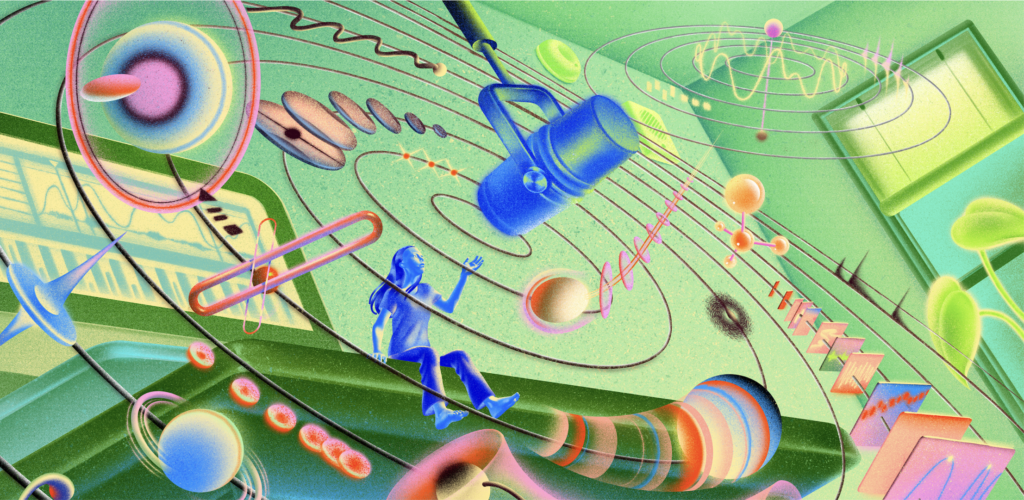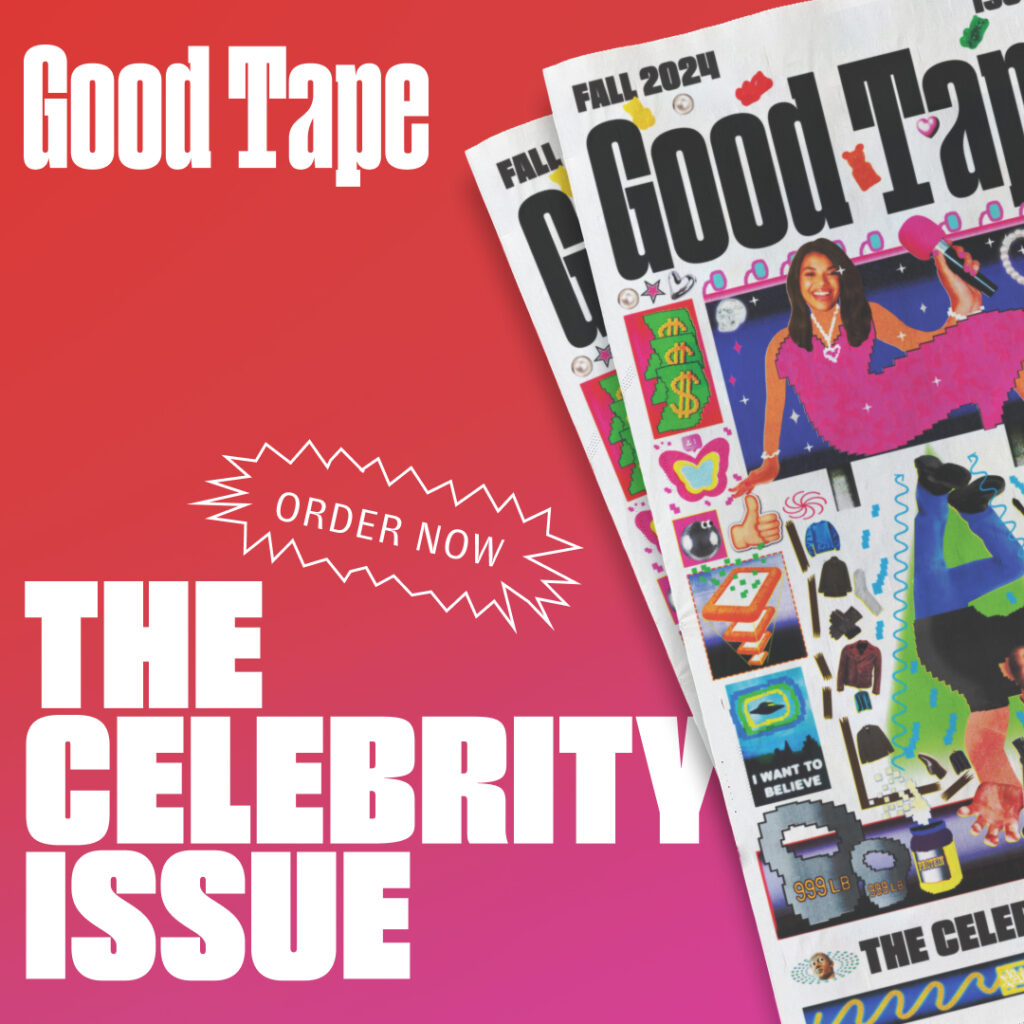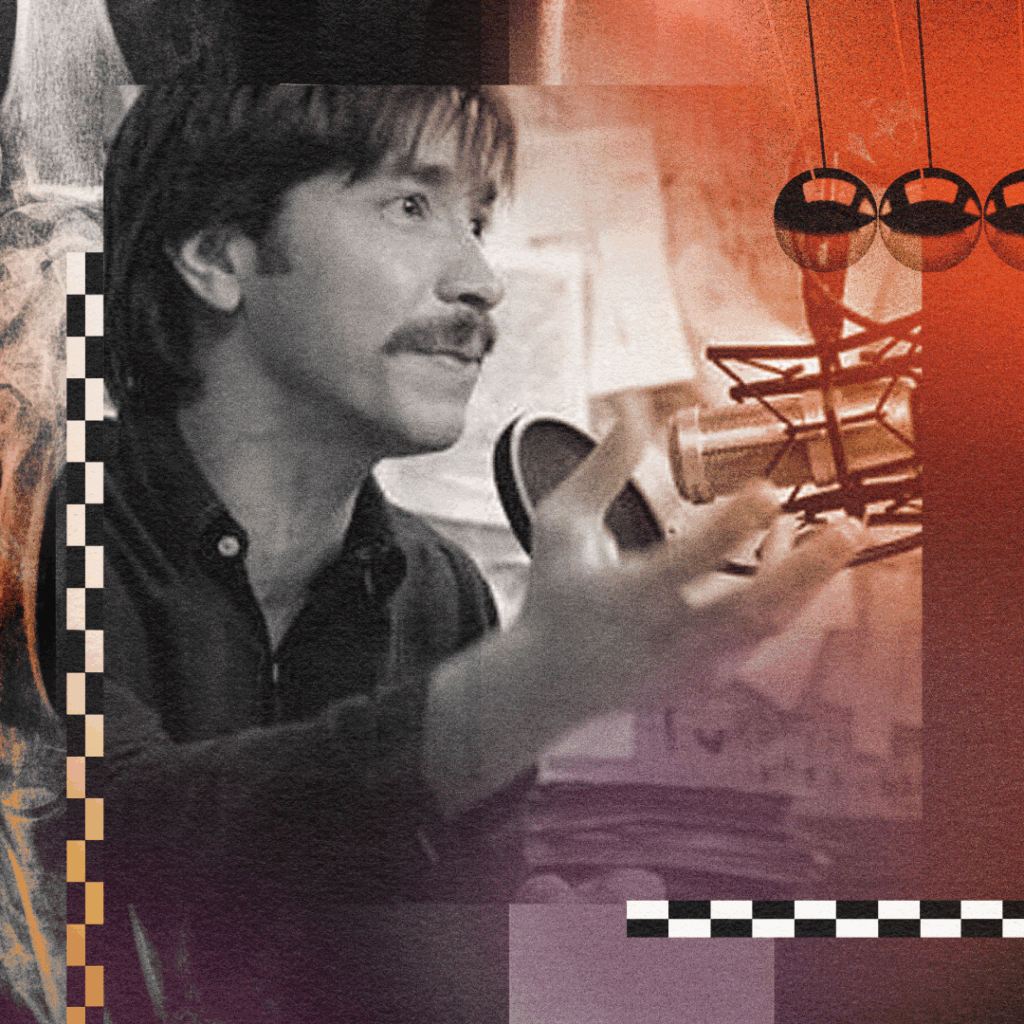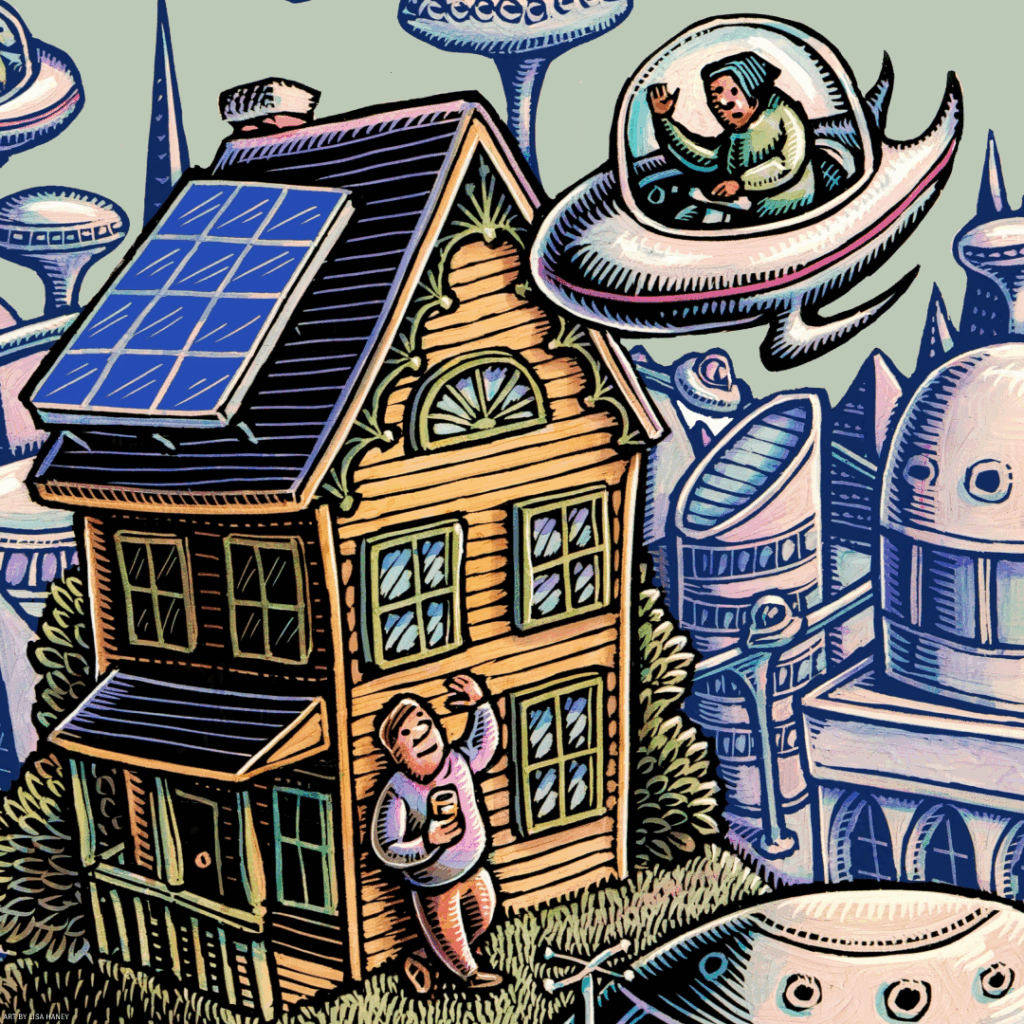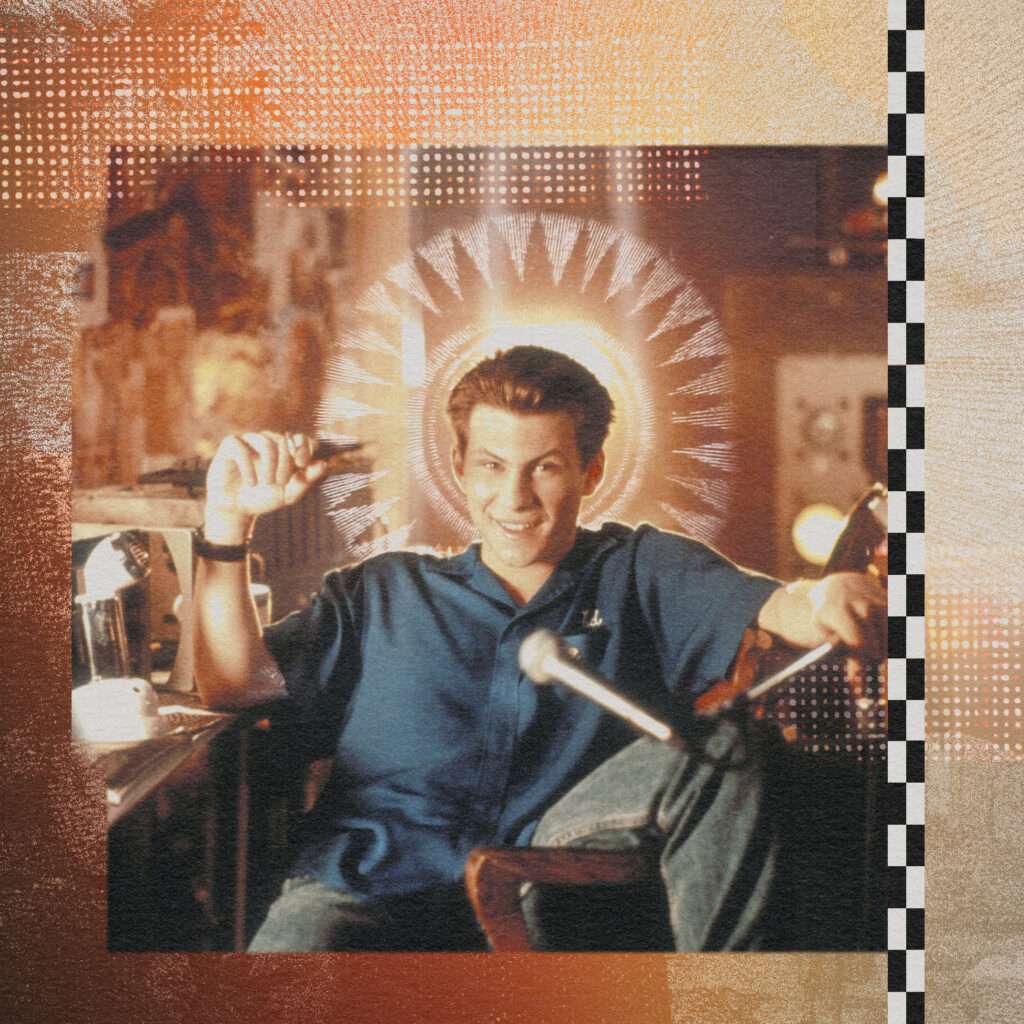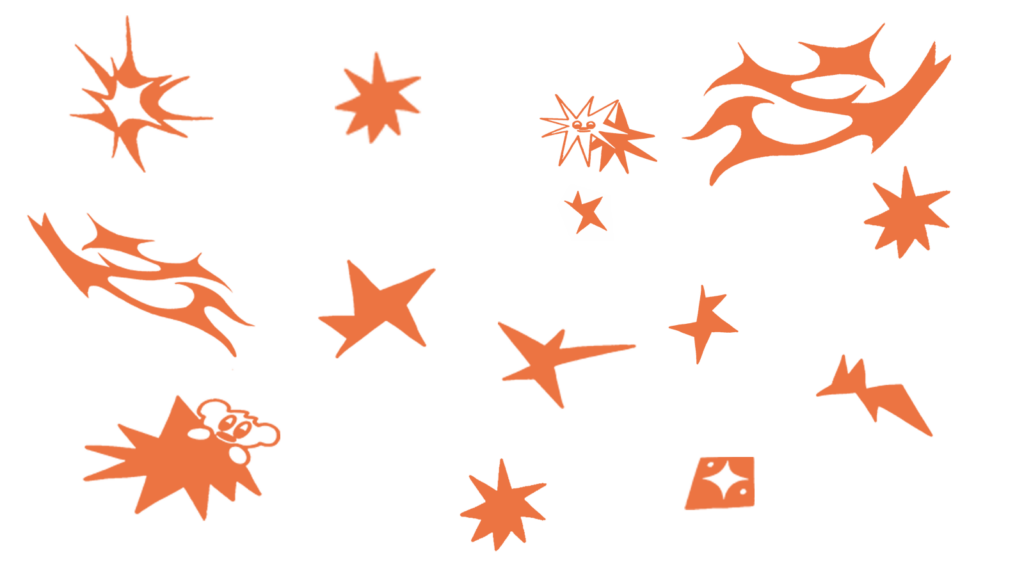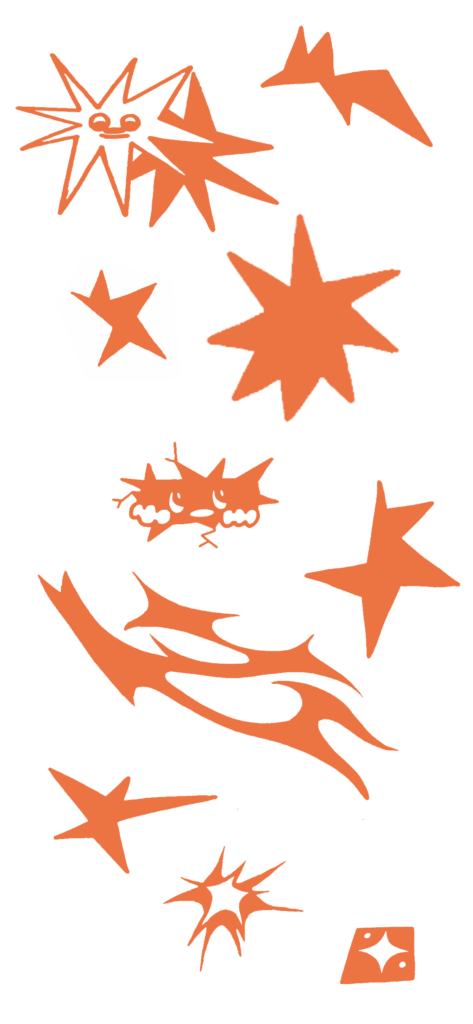Unfiltered and Unfamous
Inspiration struck during COVID-19 lockdown. I was trapped in my apartment, single-handedly keeping Drizly, an alcohol delivery service, afloat. Fueled by boredom and maybe a questionable delivery or two, it came to me: a podcast! My podcast journey began as a way to productively procrastinate and maybe, just maybe, build an audience. As a STEM professional with a flair for dramatic and slightly sassy commentary, I figured I’d weigh in on all things science and medicine while rocking a scientist/astronaut/engineer costume combo (think budget cosplay, not Comic-Con). My setup was pure Brooklyn DIY: a trusty 2013 iMac, Zoom, and a hanging construction work light. Noise cancellation? Not a chance. Sirens wailing during a discussion of the Duffy antigen? Just another layer of Brooklyn charm. My ultimate dream was to snag Bill Nye The Science Guy or Neil deGrasse Tyson as a guest. I even slid into Neil’s DMs, picturing us having a mind-blowing science chat. Imagine my disappointment when I saw him guest starring on Amber Rose’s podcast, “I Hope They’re Not Listening.”
Everything went downhill from there. I could rattle off stats and trends about the podcast boom, but let’s be honest, the only podcasts anyone talks about are the ones by celebrities who already have a team of people following them around and more money than they know what to do with. The entertainment industry has had its rough patches with the WGA and SAG-AFTRA strikes, but I have only tiny violins for the A-listers who can’t afford their third mansion anymore.
Celebrity podcasts are everywhere. From Oscar winners tackling true crime to pop stars dissecting the philosophy of bubble baths, no topic is safe — or lucrative enough. There’s a certain novelty to hearing your favorite actor explain the finer points of sourdough, but be for real — maybe it’s not all about artistic passion. Take Dax Shepard. Hilarious dude, great actor. But come on, his wife voiced Anna in “Frozen.” The $9 million his podcast, “The Armchair Expert,” rakes in annually is probably couch change for them. And it’s not just Hollywood — former NFL star Shannon Sharpe’s podcast, “Club Shay Shay,” made a cool million just from one viral episode with Katt Williams.
I’m not saying we basement babies don’t chase fame and fortune with our podcasts. We’d be crazy not to want a paycheck for our self-proclaimed brilliant ideas and hours toiling in obscurity. But authenticity has to count for something. Are A-listers truly invested in the topics they’re discussing, or are they simply following the latest lucrative trend? One can’t help but be skeptical. By one, I mean me.
To be clear, this isn’t necessarily a shot at celebrities themselves. They didn’t make the podcast world (or capitalism); they’re just reaping the benefits of living in it. The reality is that podcasting has become a big business. Platforms like Spotify and Apple Podcasts throw millions at famous people. This dynamic is in stark contrast to a time when indie creators talked away for the love of the game and maybe a handful of downloads. While passion projects still exist, the sheer volume of celebrity podcasts suggests a more bottom-line-driven approach. Brand sponsorships within podcasts are expected to reach $2 billion to $3 billion this year. Celebrities, with their built-in audiences and established brands, are naturally attractive. It creates a feedback loop: celebrities attract listeners, listeners attract sponsors, sponsors attract more celebrities. Everyone else is left out of the loop.
But there is a silver-plated lining. Podcasts are parallel to galaxies in the observable universe; they are limitless. There is a niche for everyone, from book clubs to taking a walk — yes, a podcast exists of a man walking and saying absolutely nothing. While A-listers dominate the headlines, there’s still a thriving community of independent creators churning out content across a continuum of topics. But the challenge will always be cutting through the celebrity cacophony.
Maybe we can turn this challenge into an opportunity. Let’s continue to carve our own space in the ever-evolving audio universe. Keep recording, keep building your communities, and keep challenging the status quo, even if it’s from your mother’s basement. It just requires a bit more creativity and a whole lot of hustle. I want — or maybe need — to believe there’s still a place for the passionate nobody, trusty 2013 iMac and all. Though I did upgrade to professional-ish lighting and a microphone.
![]()
Tiffany Drummond is a Brooklyn-based clinical research instructor and patient advocate who also runs a professional writing business and hosts two podcasts: “Clinical Trials: The Good, The Bad, and The Absurd,” and “Don’t Wait, Write Now.”
